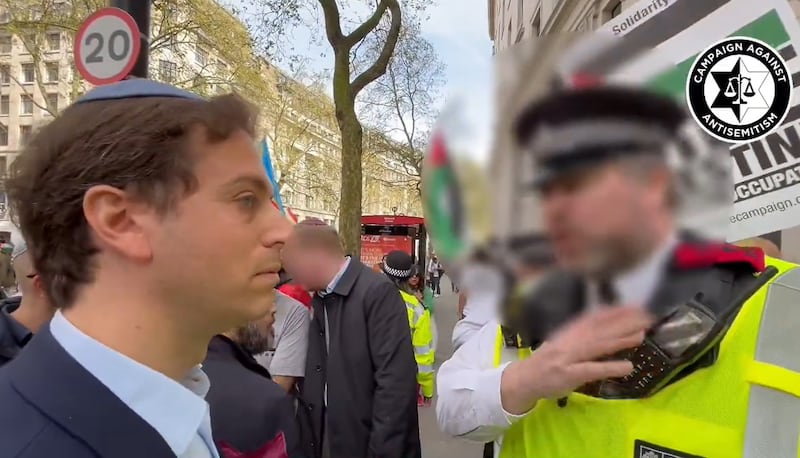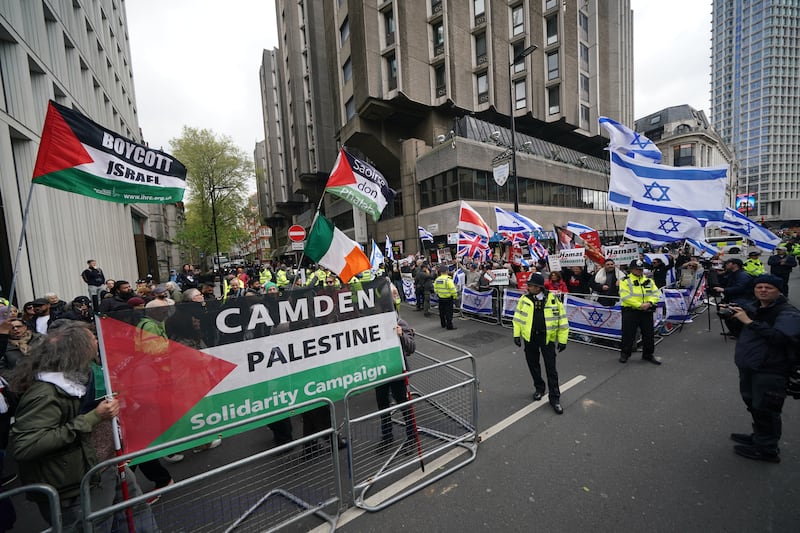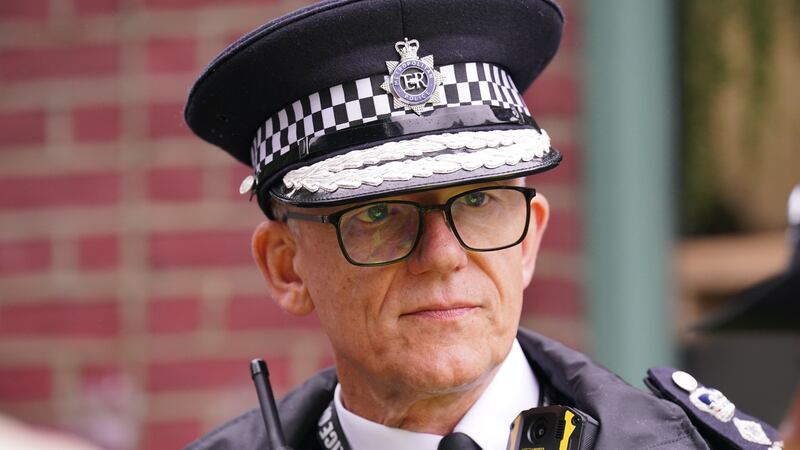The Campaign Against Antisemitism (CAA) has called for the Metropolitan Police Commissioner to resign or be sacked over the force’s handling of pro-Palestinian demonstrations.
In a statement, the CAA’s chief executive, Gideon Falter, said Sir Mark Rowley had failed to curtail the marches, allowing “countless antisemitic hate crimes and terrorist offences” to be committed “in broad daylight on our streets”.
He added: “Racists, extremists and terrorist sympathisers have watched the excuses and inertia of the Met under his command and been emboldened by his inaction at precisely the moment when he should be signalling a renewed determination to crack down on this criminality.
“What the Met under Sir Mark has done to the Jewish community over the course of six months is utterly unforgivable and it is time for him to go. Enough is enough.”

Sir Mark said: “Every member of the Met is determined to ensure that London is a city in which everyone feels safe.
“We absolutely understand how vulnerable Jewish and Muslim Londoners feel since the terrorist attacks on Israel.
“Some of our actions have increased this concern. I personally reiterate our apology from earlier this week.
“Today, as with every other day, our officers will continue to police with courage, empathy and impartiality.”
Mr Falter has been at the centre of a row about the policing of demonstrations after the CAA published footage of a police officer describing him as “openly Jewish” during a protest in central London on April 13.
In the clip, another officer told Mr Falter: “You will be escorted out of this area so you can go about your business, go where you want freely, or if you choose to remain here because you are causing a breach of peace with all these other people, you will be arrested.”
The officer said that Mr Falter’s presence was “antagonising”.
The Met apologised on Friday, suggesting opponents of pro-Palestinian marches “must know that their presence is provocative” and they are “increasing the likelihood of an altercation” by lining the route to object.
But the force subsequently issued another statement apologising for the “further offence” caused by its first apology.
Mr Falter said his treatment had been “a disgrace” and “the inevitable conclusion of six months of inertia and contextualising crimes away by a Met that has curtailed the rights of law-abiding Londoners in order to appease mobs rife with anti-Jewish racists and terrorist sympathisers”.
Policing minister Chris Philp said on Saturday he was “deeply concerned” and would meet Sir Mark the following week to discuss the incident.
He said: “No-one should be told their religion is provocative, nor an innocent person threatened with arrest solely because of someone else’s anticipated unreasonable reaction.”
Home Secretary James Cleverly has also written to the Met and London Mayor Sadiq Khan about the incident.
A Home Office spokesperson said: “We welcome the Met Police’s apology, and recognise the complexities of policing fast-moving public protests, but simply being Jewish – or of any other race or religion – should never be seen as provocative.
“Anyone of any religion should be free to go about their lives and feel safe doing so.”
A spokesperson for Mr Khan said: “Everybody must feel safe going about in London wherever they please.
“The way the original incident was dealt with by the Met was concerning and the original response put out by them was insensitive and wrong.
“The Met have an extremely difficult job – particularly so when it comes to operational decisions taken while policing marches – but in the end the Met must have the confidence of the communities they serve and it is right that they have apologised for the way the incident was handled and their original public response.”

On Saturday, two rival protests took place alongside each other in Tottenham Court Road, central London – one pro-Israel and one pro-Palestine.
The Met has faced criticism for its handling of a series of pro-Palestinian demonstrations since the renewal of hostilities in Gaza last October.
Last month, Prime Minister Rishi Sunak said the public wanted to see officers “not merely manage these protests, but police them”, while his former home secretary, Suella Braverman, said the Jewish community had been “let down by the authorities”, during a Commons debate in February.








